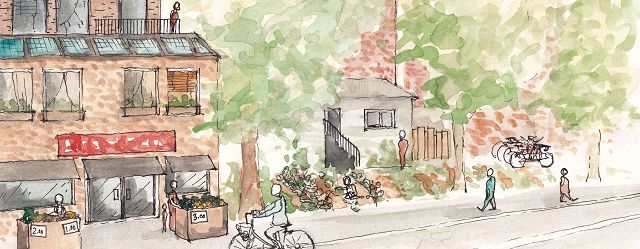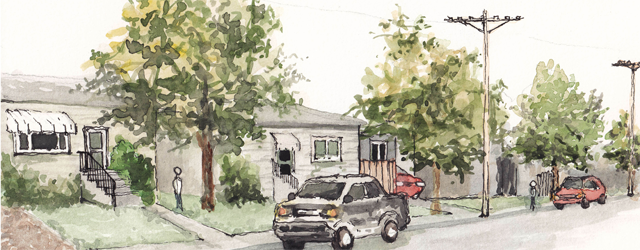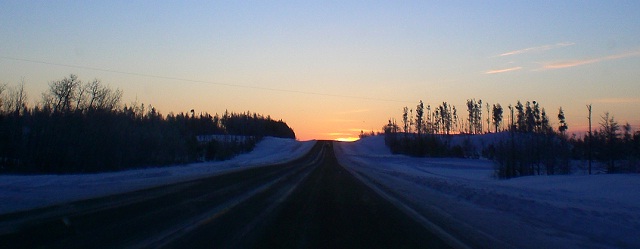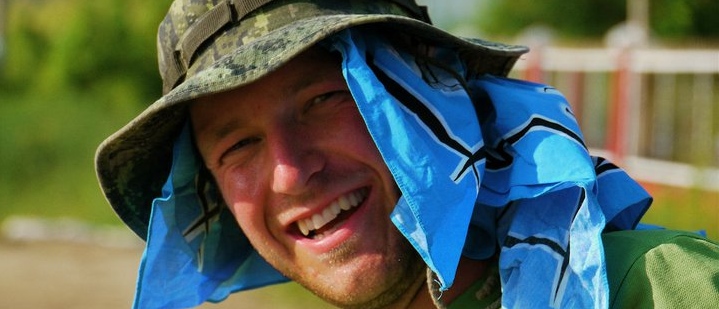Vision of Earth is proud to announce that we have been selected as a semi-finalist for the New Shape Prize from the Global Challenges Foundation. We’ve made our submission open to the public.
Category: Case Studies
Places that we have looked at in more detail.
Regina’s wastewater plant – Is a P3 the right answer?
So, the big vote is tomorrow. Regina residents have been back and forth with regards to the P3 debate, but there still seems to be a lot of undecided voters and confusion regarding the proposed project. Still haven’t decided? Want the lowdown? I’m going to do my best to explain.The first thing that’s required when […]
Regina’s Rooming Houses debate
The City of Regina has recently begun consulting residents about the subject of “Rooming Houses,” which are homes in residential areas in which both the owner and renters are residing. If all renters in a home are relatives, then it is not a Rooming House.1 The City has asked that comments on the subject be […]
Response to Design Regina Draft Documents
Preface This document is a response to the draft documents posted as part of the Design Regina process. The authors of this response are also the primary authors of Transforming Regina: Planning for 2040 and beyond, which achieved a place in the finals of the Regina Morph My City competition. Readers interested in a detailed […]
Harvest and Hunger: Amy Jo Ehman on local food choices
Hello! This is my first post on Vision of Earth. Glad to be here. On November 9th & 10th, SCIC (Saskatchewan Council for International Cooperation) hosted an event in Saskatoon called Harvest and Hunger (introduced in our earlier post: Harvest and Hunger: Brainstorming the future of the world food system). SCIC is an umbrella organization that represents […]
Harvest and Hunger: Brainstorming the future of the world food system
Harvest and Hunger The Saskatchewan Council for International Cooperation is hosting an event in Saskatoon on November 10th called Harvest and Hunger. The event sets out to answer three questions: Who controls the world’s food? Who has power in the global food system? Who doesn’t? What are people doing – both in Saskatchewan and around […]

Morph My City Report – Transforming Regina: Planning for 2040 and beyond
We’re releasing our entire urban design report on the city of Regina. Originally developed for the Morph My City design competition and the National Infrastructure Summit, this report contains our main insights into the future of Regina and other North American Cities.

Vision of Earth submission chosen as finalist in Morph My City Competition
Vision of Earth has been selected as a finalist in the Regina Morph My City competition. We’ll be presenting our work at the National Infrastructure Summit and releasing all of it to the public.
Moving Planet Montreal video by Developing Pictures
A wonderful video about Moving Planet Montreal was created by Alex Pritz of Developing Pictures. The video features Ben Harack in his first-ever YouTube appearance!
Envisioning a Green Life: 10 ways you can make a difference
Simple, practical advice on how to live a green life. Based on years of research and thought on the matter by the Vision of Earth team.
Ben’s Interview on Radio CKUT 90.3 FM
Ben Harack was interviewed on the Ecolibrium radio show on CKUT in Montreal. Topics were Moving Planet, Saskatchewan’s sustainability, and peer-based cross-disciplinary efforts towards sustainability.
John Klein: Social involvement and sustainability in Regina, Saskatchewan, and Canada
John Klein is a notable blogger and community activist in Regina, Saskatchewan. Here he answers our philosophical and practical questions about the most important issues facing our society today, and what each of us can do about them.

A renewed look at 2010, a sustainable vision for 2011
Here we review major renewable energy topics from 2010 and then turn towards analyzing energy issues for 2011 and beyond.

Curtis Dorosh: Green living, building, and volunteering
How to live green? Build green buildings? Put our efforts towards a better future? Curtis Dorosh has spent much of his life trying to answer these questions. Collected here are some of his answers.
Lindsey Simpson of TEDxMcGill on volunteerism and planning major events
Lindsey Simpson, one of the organizers of TEDxMcGill, talks in this interview about why she likes to volunteer and work hard to plan such big events. TEDxMcGill is an externally organized TED event in the city of Montreal, Canada on November 20th, 2010.
Types of hydroelectric power: How do the dam things work?
Hydroelectricity, or ‘hydro’, is generated from the energy in the water cycle of the earth. The sun evaporates water on the surface of the earth, causing it to rise up to form clouds. Clouds eventually form droplets, which then rain, snow, or hail down to the surface. Water on the surface flows downhill until it evaporates again. During this time it may become trapped in glaciers, lakes, ponds, puddles, or the ocean. Driven by the sun, the water cycle is a truly renewable resource.
Jim Elliott shares his thoughts on sustainability, community, and living green
Jim Elliott is a notable figure in the sustainability movement in Regina and Saskatchewan. He is involved with many environmental action groups, poverty-reduction groups, and the Citizen’s Public Transit Coalition for Regina.
Laura Pfeifer on urban ecology and community leadership
Laura Pfeifer is the founder and editor of Regina Urban Ecology, and is the Regina organizer of Jane’s Walk.
Reservoir hydro resources on the Canadian prairies
We have been captivated for a long time by the intriguing possibilities inherent in combining Manitoba’s extensive hydro resources with Saskatchewan’s high-quality wind power. A number of other groups in Saskatchewan have been lobbying for greater interconnection between the two power grids to take advantage of the natural synergy that exists between wind power and reservoir-based hydro power.

Publicly Administered Green Energy Futures
Our goal is to keep our physical power infrastructure publicly owned, but gain some of the advantages of the private sector. The key to our recommendation is voluntary public investment from the people of Saskatchewan. In order to stimulate new renewable energy construction, we recommend that SaskPower open up renewable energy projects for direct public investment.
